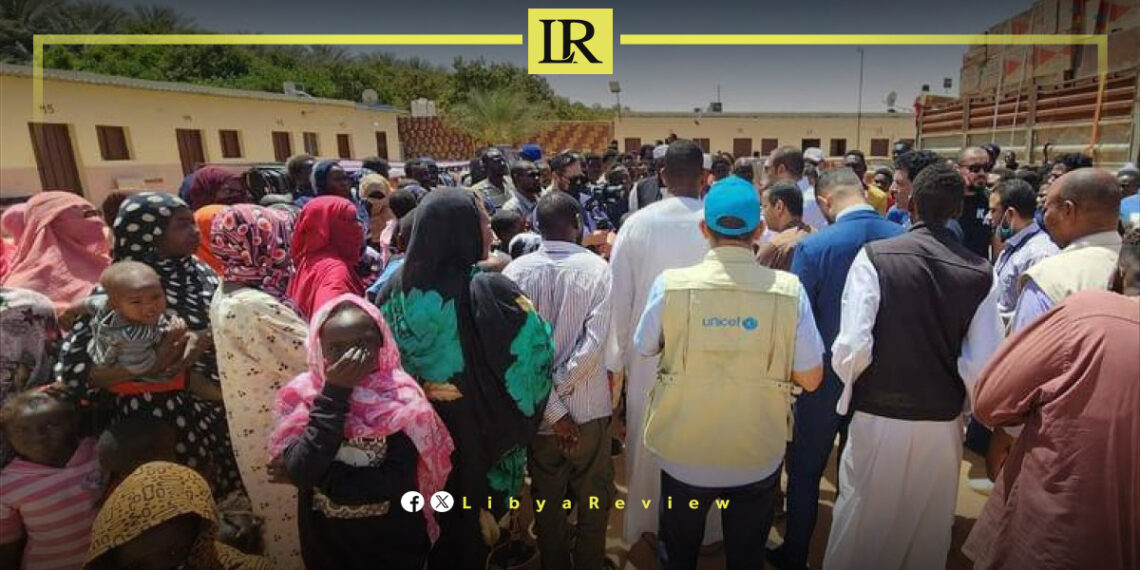Abdullah Suleiman, spokesperson for the Libyan municipality of Kufra, has reported a significant rise in the number of Sudanese refugees in the city, which is affecting the level of services provided to both citizens and refugees alike.
In statements to the “Fawasil Platform,” Suleiman noted that the refugee population now equals half of the city’s residents. He expressed concern over the city’s institutions, which are not equipped to handle this influx and are in dire need of more support and resources.
He pointed out that the city hosts over 40 settlements for Sudanese refugees, which requires a substantial increase in services, particularly sanitation services.
“The refugees are currently living in dire conditions,” Suleiman continued. “While some international organizations have provided aid, there is a pressing need for more assistance.”
Suleiman appealed to international organizations to increase their aid, emphasizing the importance of addressing the psychological and social aspects of the refugees’ situation, especially for children.
Libya has been in chaos since a NATO-backed uprising toppled longtime leader Muammar Gaddafi in 2011. The county has for years been split between rival administrations.
Libya’s economy, heavily reliant on oil, has suffered due to the ongoing conflict. The instability has led to fluctuations in oil production and prices, impacting the global oil market and Libya’s economy.
The conflict has led to a significant humanitarian crisis in Libya, with thousands of people killed, and many more displaced. Migrants and refugees using Libya as a transit point to Europe have also faced dire conditions.
The planned elections for December 2021 were delayed due to disagreements over election laws and the eligibility of certain candidates. This delay has raised concerns about the feasibility of a peaceful political transition.
Despite the ceasefire, security remains a significant concern with sporadic fighting and the presence of mercenaries and foreign fighters. The unification of the military and the removal of foreign forces are crucial challenges.


